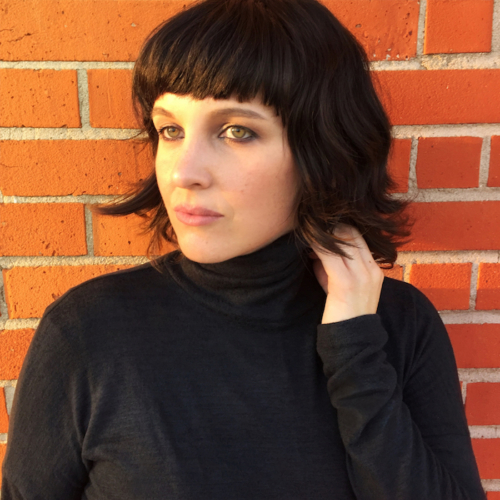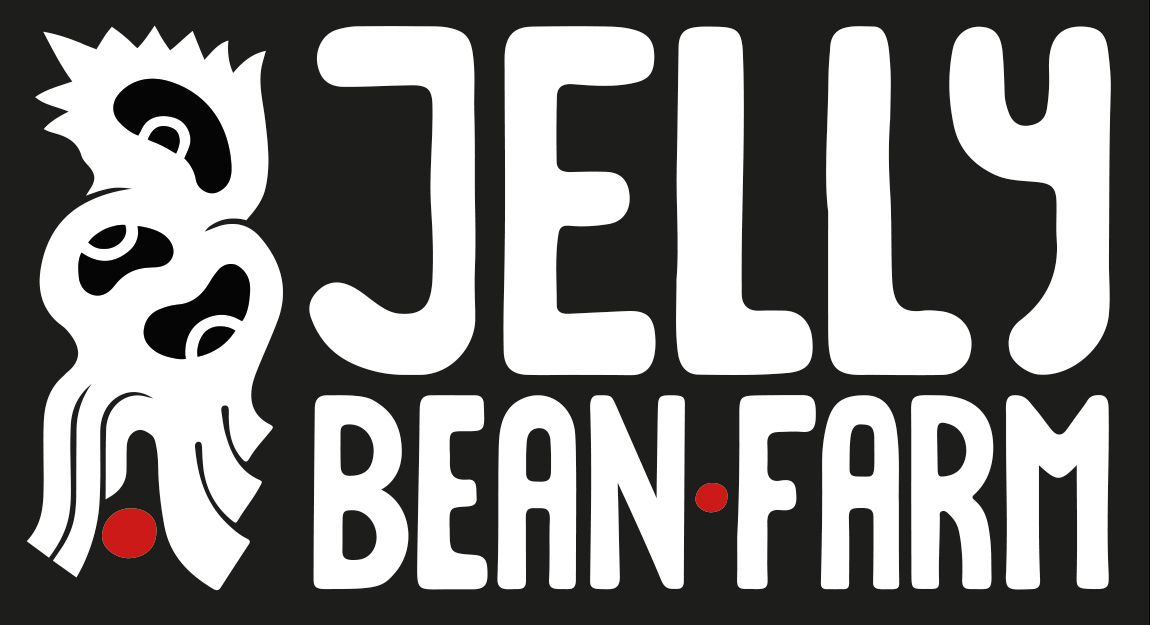Founded in LA, Ganesa’s Jelly Bean Farm has been bringing the sound of the UK to the states for a few years now. Between 2014-2016, Ganesa was playing UK bass and techno sets at dubstep, techno and footwork nights like Juke Bounce Werk’s night Rocksteady when there were no nights for the UK dominant sound.
Recently releasing the tenth EP on the label with Leeds-based producer Krotone, JBF has been heavily supported by likes of Lee Gamble, Shed and Skream whilst also releasing music from heavyweights such as Hodge and Truska. The label has hosted releases from a handful of LA / Southern California producers such as Mershak, Squane, Kelly Dean and Rees as well as international artists from Mexico City, Netherlands, New Zealand and more, with the aim to use the platform to get their music heard worldwide.
Overall the UK bass scene in the states is a tight-knit community where they will drive long distances or even fly across the country to support each other and we spoke to Ganesa to find out more about their scene, the running of Jelly Bean Farm and the decision to release digital only.
How did the idea for Jelly Bean Farm come about and what is the concept behind it?
Back around 2014 most of the building blocks to start a label were in place and I was just waiting for that final spark to inspire me. One day I left my long-time best friend Rees and boyfriend Squane together for 4 hours while I was off running errands. I returned and they had collaborated on the best track I had ever heard in my life. That track was “Little Orphan Android.” When they played it for me I lost my shit and pretty much demanded to release it! From there I had to come up with a name and we all know how hard it is to name a project. Around that time I was noticing a lot of aggression and a brooding attitude surrounding that music scene. Out of the blue, the name popped in my mind — Jelly Bean Farm — I thought it would be a funny juxtaposition to have a label turning out tunes that had a darker feel wrapped in a package so playful. In a lot of ways, the name was sort of a rebellion-fueled joke. I think I just wanted to add a bit of levity to the whole thing.
Have you always known that you wanted to run a label?
I suppose the initial urge to start one struck around the early/mid-2000s. Rees and I would be hanging out in his studio dreaming. I didn’t ever think of the logistics. At the time it was more of a fun thing to imagine… knowing where to start and feeling compelled is a different story.
Do you run the label by yourself?
I do, it’s my baby – I’m kind of a control freak about it.
Squane, Rees and I all live together and they are a core part of the label. Most of what we talk about and do on a daily basis is music related -label or otherwise. I’m a collaborator at heart and love to talk things out with my closest humans. However, at the end of the day I’m the boss with the final say, so everything regarding the label is nice & streamlined.
Do you see any correlations between your label and DJ sets? Are you telling a similar story?
The label is like a DJ set in the sense that the tracks released on JBF are all tunes that I’d play in a set. From another angle, I curate each EP as an LP. I think if you sit down and listen to them from beginning-to-end they take the shape of a story or journey much like a DJ set.
Spanning across bass and techno, what is the scene like in LA for those genres, especially the bass scene?
The techno scene in LA is alive and well. In the past, it was mainly the big name festival-headliners or legends (local or otherwise). But, it’s been shifting over the past 5 years and now you get nights like Into the Woods that book UK techno artists like Hodge & Randomer. This night is the ‘Pretty Pretty Good’ you have up north of LA. The bass scene in LA is still pretty separated into genres, though I have also seen that shift over the years. The bass scenes are still strictly drum & bass, footwork, club music, dubstep, and that. I have recently seen more open-concept nights popping up and promoters willing to take some risks. LA has a lot of open-minded people ready to sponge in quality music of any type. It’s just a matter of time until a night takes the reigns on bass in an open-format way.
When it comes to signing an artist to the label, do they tend to be artists that you have a relationship with?
Sometimes they already are friends and sometimes not at first. But, through the process, we develop a relationship. At the end of the day, we already have something dear to our hearts in common (this music). And, I like to work with nice people so that is already a good base for a friendship. I love finally meeting the producers I work with in person, it’s like connecting with a long lost family member.

Do you have your eye on any artists at the moment that you’d like to sign?
I am always interested in and have my eye on quite a few producers. I don’t really think in terms of ‘signing artists’ in a traditional sense though. At this point, I want the producers I release to spread their talent around! To get eyes on themselves and spread their music. I want them to have the career path they want and I don’t feel like a commitment is necessary. I think the producer/label relationship that spans years and decades will form naturally.
If someone was to send you a demo, what needs to stand out to you in order for you to consider signing the release?
Honestly, I know within 3 seconds if the track won’t fit the label. But, knowing what to move forward with takes a little more time. I like to download tunes, to play around with them in sets & mixes… I need to listen to tracks in different contexts and moods. Of course, there has been love at first listen type tunes as well. I also weigh-in if the producer is a good person & if we communicate well. This project is all about the love of something. I am not about creating headaches for myself.
Are there any misconceptions about running a label that perhaps people don’t realise until they actually go into it?
That it’s an actual job if you approach it seriously. Of course, there are plenty of label-heads that have other people manage it for them, but Jelly Bean Farm is not there. And honestly, I’m not sure that I’d ever trust anyone to run it. Another thing that creates confusion is that people don’t understand the pace this particular world works in. It’s slow at times and then ramps up sporadically – it’s run by music-types so it’s all over the place. I’ve had to learn to go with the flow!
Where does your inspiration come from for the artistic direction of your artwork?
It comes from what I want music and dancing to be to for me; surreal, escapist, non-human, nostalgic & emotionally full-spectrum. I was so lucky to have found the perfect artist to work with. His work inspires me every day. I’d been following ilan katin on Instagram for a couple of years before approaching him about JBF. I wrote him a detailed message about the label & vision. I pretty much told him that my gut knew he had to be the artist for the label. If he had said no I don’t think I’d have even wanted to move forward. My gut was right, we work so well together and he creates the surreal world in my mind naturally. He gets it, gets me -we have a really amazing work-relationship and friendship.
From what I can see only one of your releases on Boomkat is available on 12” format. What is the decision behind focusing on digital releases?
From the beginning I wanted it to be digital and if & when we got there to focus on throwing a night. Vinyl wasn’t on my mind. The music being played out is mostly digital, and even I don’t like to travel with my records. So I thought the energy and money would be better spent on experience instead of an object. A huge reason for creating Jelly Bean Farm was to help the producers I love get gigs outside of where they live…mainly in the States so I could go dance to their music regularly, or eventually, book them myself (to dance to their music). The reason there is a vinyl release is that I heard something in Truska’s tone that made me want to do it for him. Also, Rees was sitting there while Nathan and I were tossing around the idea. Rees is a huge record nerd so he got excited about it and offered to front me the money to try. So it was worth my energy to make it happen for both of them, and at the same time experiment with my own feelings about it. I don’t know if and when I’ll do it again. Maybe if I know 99% of the copies will sell – I don’t want to think of even 10 copies sitting in a dump or a box somewhere taking up space.
Is there anything that scares you about running Jelly Bean Farm?
Not really? Maybe that the business of music takes me further away from what I love really about it. It’s always been my escape from day-to-day things so…
What do you enjoy the most about running JBF?
I love sharing any good news with producers regarding their releases. I also like when the promo feedback comes in. I read any neutral-to-negative feedback out loud in silly voices to Squane and Rees over our morning coffee.
Do you have any plans to expand into different avenues with JBF this year?
There are a few things I’m cooking up but I never like to announce anything until everything is finalized.
What do you hope to achieve with JBF?
In a lot of ways, I’ve already achieved more than what I set out to! Now I’m interested in finding more ways to help the artist’s careers move forward in any way I can.
‘Bubbles’ by Krotone is out now on Jelly Bean Farm – buy here.

One reply on “ Label Love Affair: Jelly Bean Farm ”
Comments are closed.